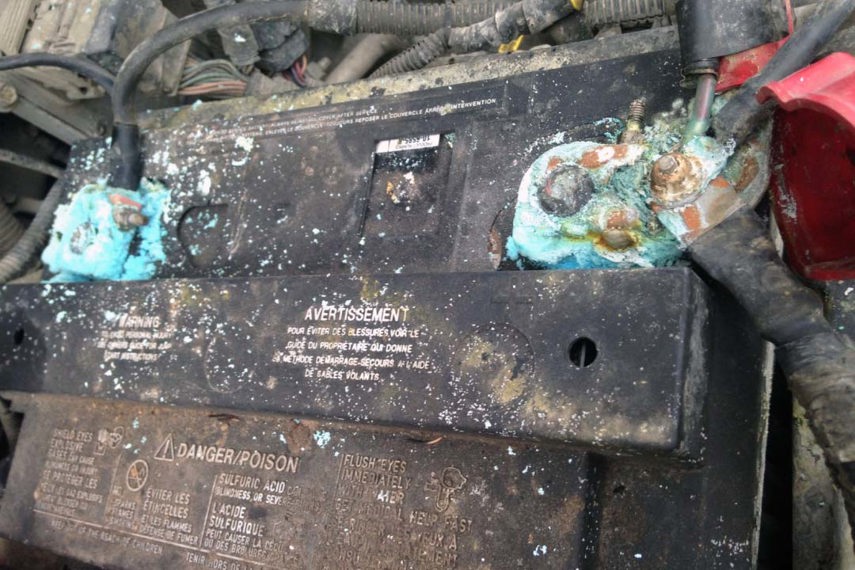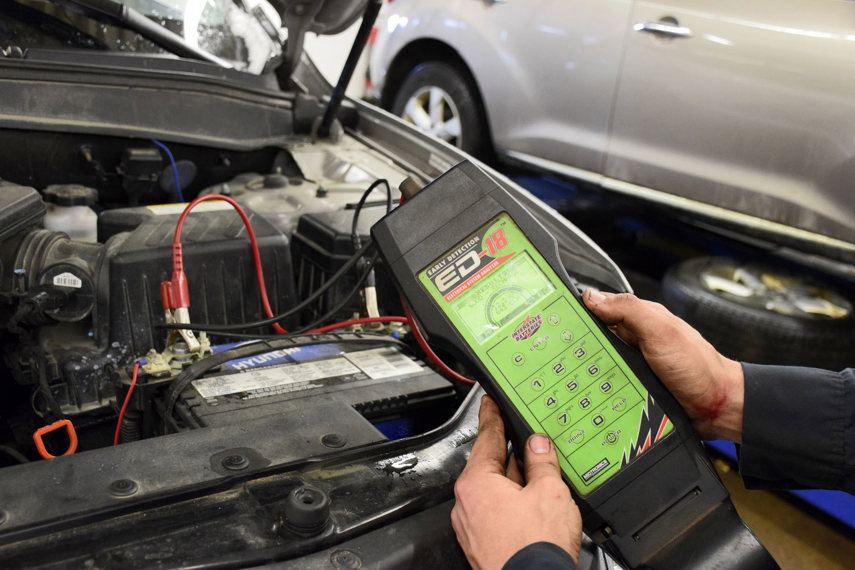How long does a car battery last?
That’s a question with many answers and, unfortunately, the most truthful answer is: “It depends.” It’s a bit of a frustrating non-answer because there are many factors that affect the life of your car’s battery.
In general, a car battery can be expected to last from about two years on the low side to five years and beyond. Still, the battery in your car or truck has a finite lifespan that’s affected by a multitude of factors. Some of these factors – like the battery you choose and how/if you maintain it – are in your control. Other factors, including those related to climate and temperature, are not.
It’s easy to tell when a battery has failed – the engine will fail to start because the battery is no longer supplying sufficient voltage to the starter motor – but there are other signs to watch for. Towards the end of its life, a dying car battery may cause many electronic problems with your vehicle, a strong indication that it’s time to replace the battery. That said, a battery can just quit suddenly and will need to be replaced right away.
Here’s a look at the factors that affect your battery’s service life and some simple tips to help maximize it.

Not All Batteries Are Created Equal
All batteries – likes the ones in your TV remote or cellphone – have an effective lifespan, after which they need to be replaced. It’s no different with the battery in your car.
Some owners of new cars across many makes and models say that the factory-supplied battery may disappoint with a shorter-than-expected lifespan. Eventually, some owners replace the factory-equipment battery with a different battery from a brand they’re familiar with and see improved results. In other cases, a factory-equipment battery may last for years with little issue.
Of course, not all car batteries are made the same way, which is why it’s important to choose a suitable one from a reputable brand when it’s time to replace yours. This is the first of several steps that drivers can take to help ensure a long and trouble-free life from the battery in their vehicle, and can make the difference between a battery lasting two years or five years – or even longer.
After determining which style of replacement battery is right for your car, consider the warranty offered on the replacement battery you’re looking at. Some are pro-rated, while some are longer than others, and some include perks like roadside assistance. There are a multitude of options to cater to every need and budget.

Easy Checks to Keep Your Battery in Tip-Top Shape
Another key factor in battery lifespan is maintenance.
Batteries tend to get little attention from their owners, but some occasional TLC can go a long way to extending their life.
Check for Terminal Corrosion
For instance, a buildup of corrosion that looks a bit like blue salt may form around the battery terminals over time. Left unchecked, this buildup can slowly drain the battery even when a car isn’t in use, leading to a weak battery with a shorter-than-expected life.
Regular inspection of the battery terminals is advised and proper cleaning of any buildup on the terminals should be handled promptly.

Check Up on Your Charging System
A regular charging system checkup is also a great idea. Many service centres will perform this check automatically while you’re in for an oil change, while others will perform the check upon request. It’s generally inexpensive and sometimes free.
A charging system test can quickly reveal problems within the hardware and electronics responsible for charging your battery as you drive your car. If a charging system issue is limiting your car’s capacity to properly charge and condition its battery, it could be shortening its life.
Drivers should also ensure their vehicle is running the latest software updates for all electronic systems, which can have a dramatic and positive impact on the health of your battery and its lifespan.
Check Your Driving Habits
Some driving and usage habits may also contribute to an earlier-than-expected death of the battery in your car. For instance, infrequent use of the vehicle or regular use of the vehicle on very short drives can drain the battery faster than the car’s charging system is able to juice it back up. This leaves your battery in a drained state for extended periods of time, which may reduce its life.
If your habits are similar to these, help extend the life of your battery by taking an extended highway drive on a regular basis to help the battery charge, or use a trickle charger to maintain, top off, and condition your battery while your car is parked.
A quality trickle charger can analyze, condition, and maintain your battery with minimal effort. It can be a fantastic means of extending the lifespan of your battery.

Other Factors That Affect Battery Life
We have three final tips that can help make life easier on your car’s battery and help enable a longer lifespan in the process.
Temperature
First, cooler climates tend to be more conducive to the long and healthy life of a car battery, which is a bit of a head-scratcher, as so many folks experience battery death in extreme cold. Generally speaking, most batteries are built to start an engine in the challenging environment of an extremely cold Canadian winter. But for much of the rest of the year, the battery in your car or truck will have an easier life than one used in a tropical climate all year round.
The truth is that continuous use in either extreme heat or cold is hard on your battery. Thankfully, most Canadians only experience extreme cold for part of the year and extreme heat for even less – but it’s something to keep in mind on longer road trips out of the country.
Synthetic Oil
Second, remember that using synthetic engine oil can make it much easier for your engine to start in the dead cold of winter. This means easier cranking and less battery workload, which can help improve its lifespan.
Parasitic Drain
Third, consider eliminating two commonly reported causes of parasitic battery drain, which occurs when features or systems draw power from your battery even while your car is not in use. Specifically, unplugging any USB-connected media devices when you leave the vehicle and being sure to store intelligent-key remotes at some distance from the parked vehicle, may go a long way towards extending battery life by preventing unwanted battery drain.

